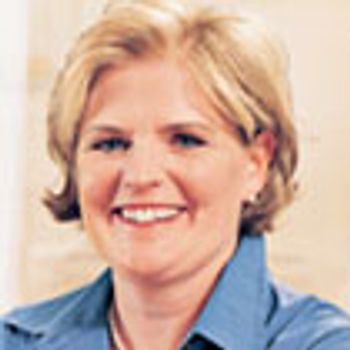
Ortho-McNeil is reaching out to the adult ADHD segment through the popular social networking site. The plan is to grow followers through education and unbranded information. Pharm Exec takes a look at the new site.

Ortho-McNeil is reaching out to the adult ADHD segment through the popular social networking site. The plan is to grow followers through education and unbranded information. Pharm Exec takes a look at the new site.

Stiefel Labs is under new management. The dermatology company was purchased by GSK in an effort to bolster its existing skincare line.

The two pharma giants announced plans to form a new specialty company focused on HIV drug development. The new, independent firm will have a total of 11 drugs on the market, with another six on the horizon, securing its place as a powerhouse in the HIV market.

After last week’s flurry of FDA warning letters directed at companies marketing through search ads, industry is left wondering what can be done be done to target patients online?

In an effort to realign its sales division to reflect the current pharma environment-smaller, faster, better-Johnson & Johnson is trimming its sales force.

Reflector points to a number of recent alarm signals that have seen European pharma move further towards dangerous territory.


Maureen Regan

WOTY- Podcast-Howson

Woty-Podcast-Sibley

Just two months after the purchase of Wyeth, Pfizer breaks its research division into two-one for large molecules and vaccines, and another for small molecules-with Wyeth and Pfizer execs at the helms.

Launching a product? Your competition likely plans to interfere. Here's how to counter a counter-launch.

Protecting Sensitive Information in Life Sciences Organizations: Top Three Misconceptions that Put Companies at Risk-Brainloop Whitepaper

In addition to overhauling healthcare, Congress is weighing proposals for updating FDA policies and expanding access to drugs.

Now that Vyvanse, Shire's innovative ADD drug, has been approved for adults, the company needs help to quickly roll out a complex message to neurologists. Its solution: a partnership that takes advantage of GSK's CNS muscle.

Compliance woes and stingy insurance providers are walloping the pharmaceutical industry. But now another nuisance is rearing its ugly head, as a high number of patients are ignoring their doctor's orders and dropping their prescriptions on purpose.

Reflector ponders recent events in the battle against counterfeit drugs.





After repeated requests for additional study information, the wait has paid off: Lilly was approved to sell its bipolar drug Symbyax for treatment-resistant depression.


With the economy in turmoil, pharmaceutical manufacturers are reassessing where and how they spend their advertising dollars.

Pharm Exec sits down with Kathryn Metcalfe, Pfizer's new vice president of corporate reputation and policy communications to discuss the new position, the perception of pharma among laypeople, and what needs to be done to boost public opinion of the drug industry.

Podcast:Women of the Year-professor to president. Anhal Purohit

The morning's other big M&A news comes out of the Bay Area biotech industry, where Gilead Sciences announced that will purchase CV Therapeutics for $1.4 billion.

Lawyers from Duane Morris LLP offer their take on the Supreme Court's groundshaking preemption decision

